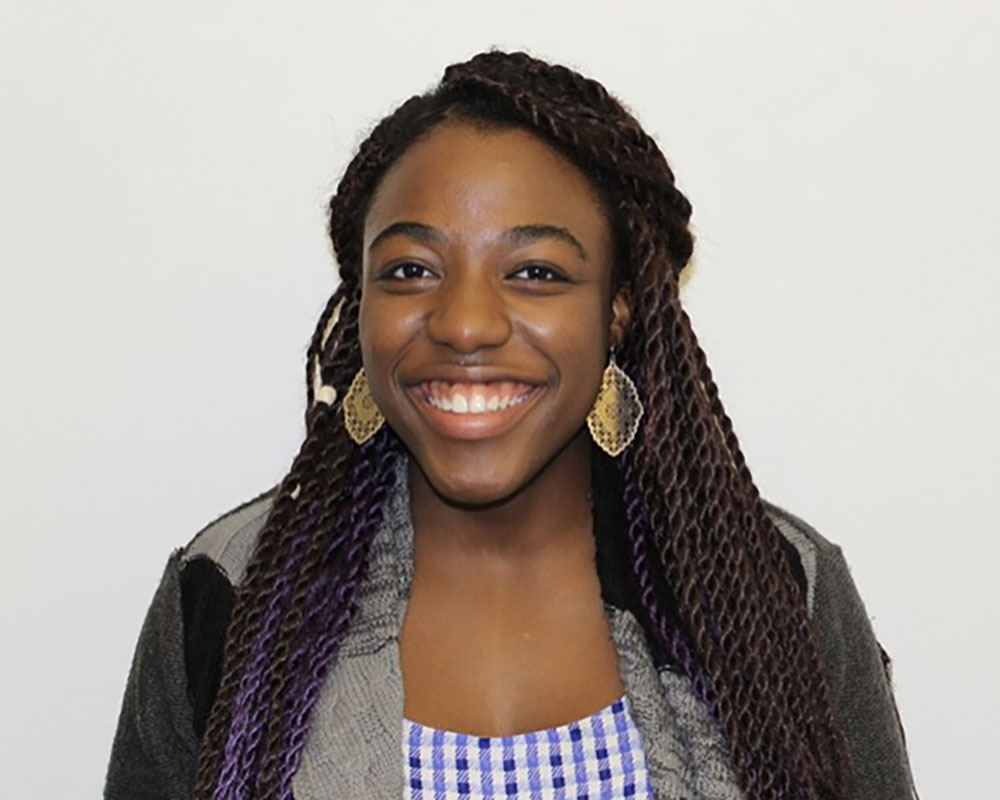Recently elected Haverhill School Committee Member Yonnie Collins, the first Black person to join the group, said she has felt welcomed by her colleagues. Member Gail M. Sullivan brought cookies once, and she talked through the expectations of the role with members Richard J. Rosa and Paul A. Magliocchetti while still campaigning.
After being sworn in three months ago, she said her particular position can be a lot of pressure.
“I’m not just the first Black woman, but I’m the first Black person ever to serve on the Haverhill School Committee. At times, that can be intimidating, and I think, a lot of minorities, when they’re in a space of power, you feel like you’re not just representing yourself, you’re not just representing your family, but now you’re representing a whole group of people,” she said.
She said she worries about being stereotyped.
“I don’t want to mess up because I don’t want them to think, well, ‘all people who look like this person, act like this, or talk like this or will behave like this,’ when I’m just me,” Collins said. “I come from a certain background, and maybe [there are] certain cultural things I share with other people, but that doesn’t mean I, in any way shape or form, represent anybody other than myself.”
Her particular life experiences give Collins a perspective she said is sometimes missing from discussions. “There are times when we’re having conversations where I’m like, ‘this is not the lived experience of everybody in Haverhill.’”
From staying at the Emmaus House as a young child of immigrants, to attending Haverhill High School, to now working as a night-shift nurse at Holy Family in Haverhill and Lowell General Hospital at the Saints Campus, she said she has seen many sides of the city.
“In a way, I was almost privileged to be able to see life at different points,” Collins said. “My family didn’t always have a car, didn’t always live in a house. We didn’t always live in the quiet side of Haverhill. I’ve lived in the shelter. I’ve lived on Washington Street.”
“Haverhill has so much to offer and I’m definitely a testament to that, from where we started to where we are now,” she added.
After kicking off her campaign, she received counsel from other Black Haverhill residents involved in politics, some of whom she has known since childhood. “I came into this on the shoulders of giants,” she said. She has been involved in community organizing since she was young because she said her mom emphasized giving back.
“Kalister [Green-Byrd] I met later on in life. I met with her near the beginning of my campaign, and she literally sat me down, and told me her story, and why it’s important that I don’t give up,” Collins said. Green-Byrd, a longtime teacher and activist who is now in her late 80s, ran for School Committee but did not win.
The meetings with Rosa and Magliocchetti also helped because, before she was elected, Haverhill’s political scene sometimes felt impenetrable.
“When I was just voting, I felt like my vote didn’t matter because—although, if you do deeper research, you’ll see the differences between people—but I felt like, and had the impression, that these are all people who live in the same neighborhoods, experience the same or similar type of lifestyle, so what difference does it make who gets in, they’re all friends and they’re going to influence each other anyway,” she said.
“That’s why I’m so passionate about being involved with the youth…I want them to see, like, Haverhill is a place where you can make a meaningful impact,” she added. “You don’t have to go to Boston to feel included. You don’t have to go to Lowell to feel included.”
She said she was hopeful young people could find inspiration in local officials like state Rep. Andy X. Vargas and recently elected City Councilor Katrina Hobbs-Everett.
While knocking on doors in certain parts of Haverhill, Collins said she noticed some people locking their cars from inside their houses. She said one older white lady wanted only to talk about government assistance, an issue irrelevant to Collins’ campaign for School Committee. Her platform involved transparency in leadership, equity, teaching accurate lessons and helping teachers feel empowered.
In interactions like those, Collins said she becomes acutely aware of potential consequences. It did not feel worth it to engage.
“What if I had gone toe-to-toe with her, and maybe she didn’t call the police, but her neighbor did because, ‘oh, there’s people arguing on the front lawn, or something like that.’ And now I make headline news, not as someone who is newly elected to School Committee, but as a Black woman yelling at an older white woman on her front lawn,” she said.
At the same time, she emphasized she is not afraid of difficult conversations, calling challenging discourse essential. She recalled another house she visited while campaigning.
“I talked to the family for almost half an hour, and there were a lot of things that we didn’t agree on, but one thing that stood out to me was the guy was like, ‘I know you see the flags that I have in front of my house, the signs I have on my front lawn, they’re not always the most welcoming, but you still were brave enough to knock at my door,’’” she said.
Though he was not going to vote for her, he said he would be willing to have an open dialogue with her if she became a School Committee member, according to Collins.

